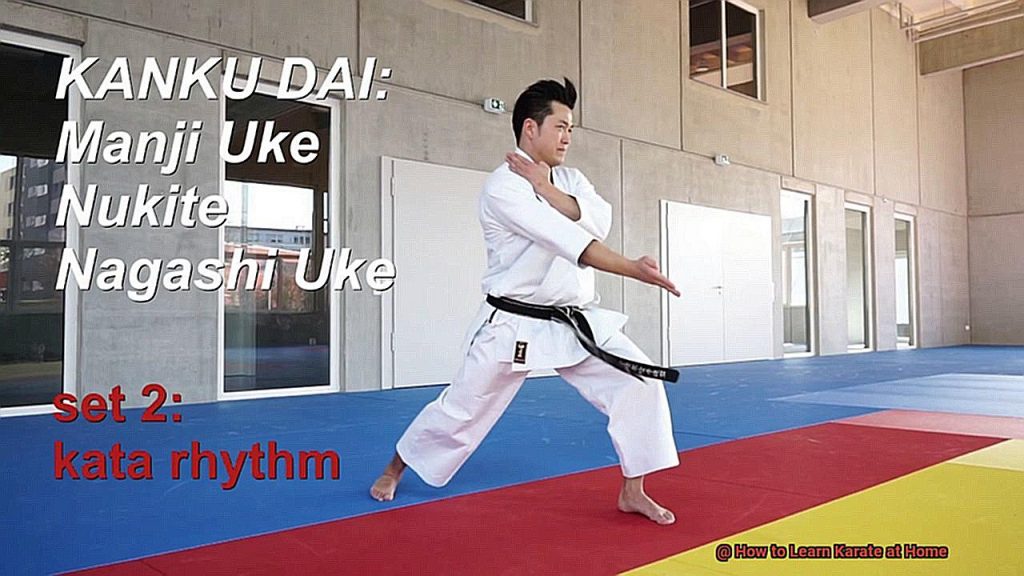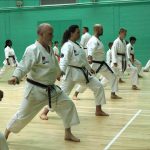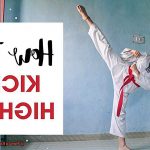Karate is more than just a martial art form.
It’s a discipline that strengthens your body, mind, and spirit. Unfortunately, many people are discouraged from pursuing it because of the time and money it takes to learn at a dojo.
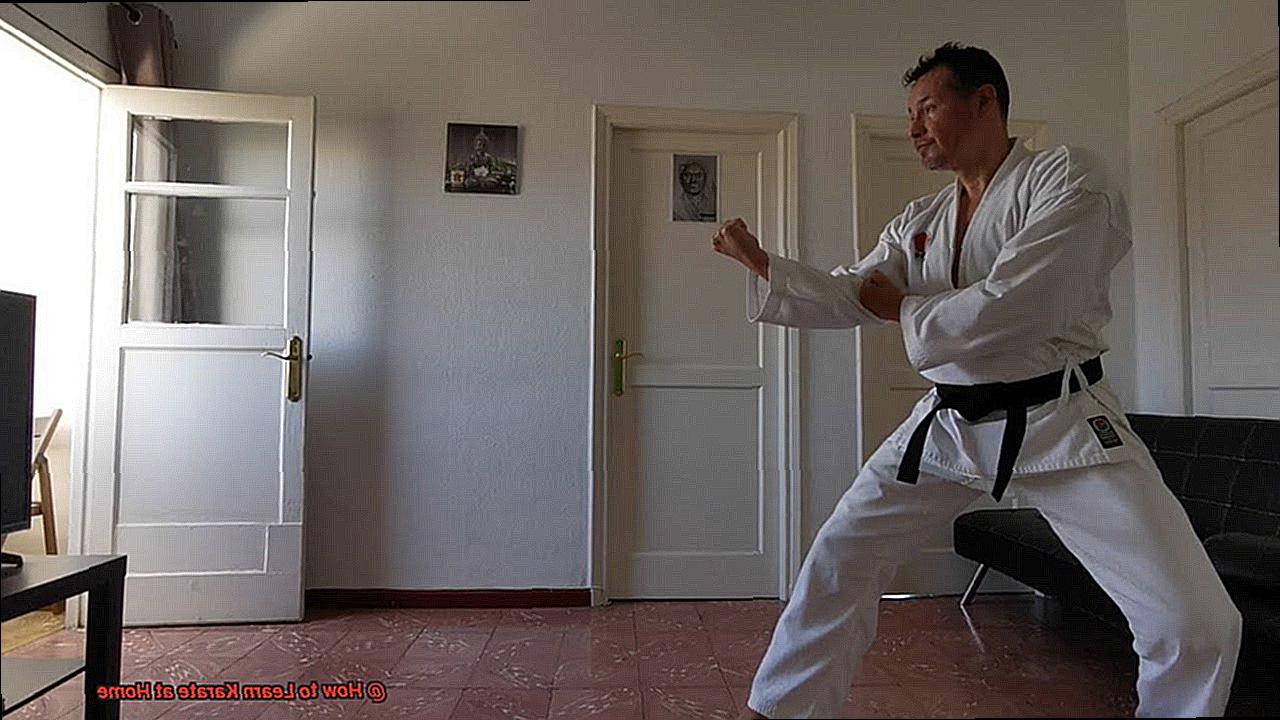
But what if you could learn karate from home? Believe it or not, you can.
In this blog post, we’ll explore how you can start your karate journey right in your living room. We’ll cover everything from creating a plan and setting goals to the essential equipment you’ll need.
You don’t need much – just a punching bag, mats, or even a simple towel to use as a makeshift belt. We’ll also discuss the different resources available for learning karate at home.
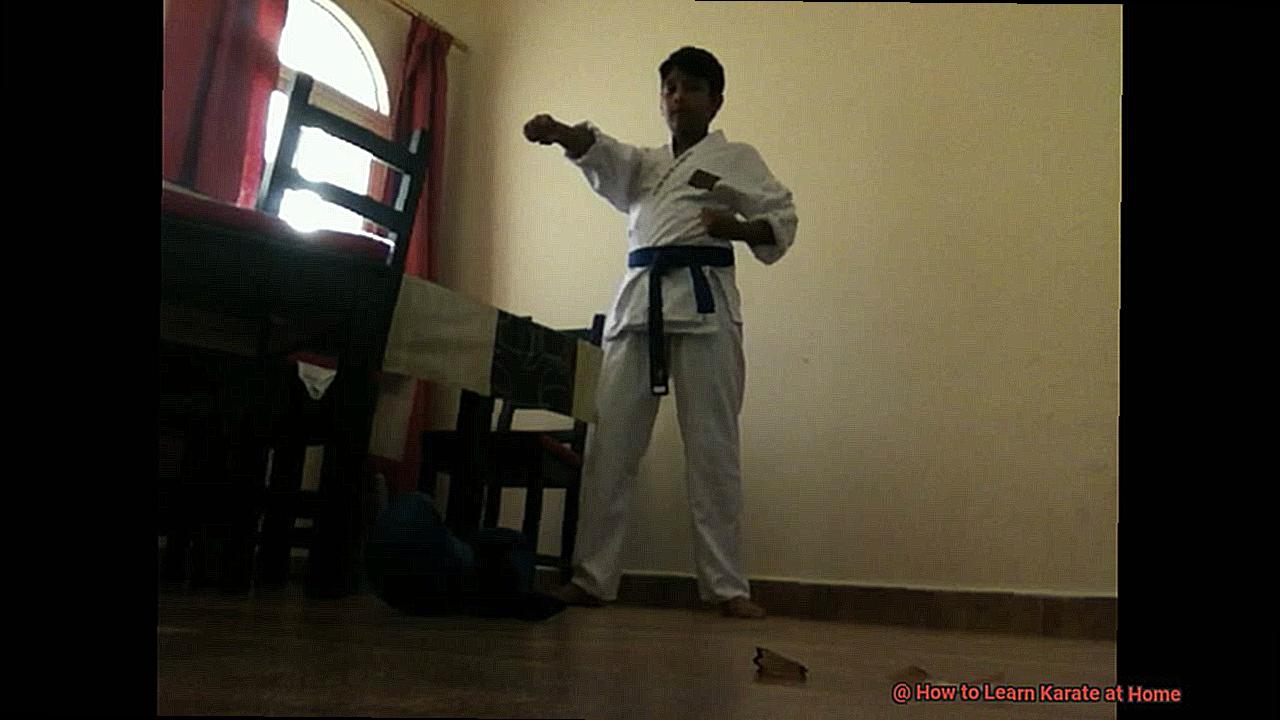
From online tutorials and classes to instructional videos, there are plenty of options to choose from. We’ll even take a closer look at the different styles of karate and which ones are best suited for beginners.
Learning karate at home is an excellent way to improve your physical and mental health. With the right tools and resources, you can achieve your goals without ever leaving your house.
Let’s get started on this exciting journey together.
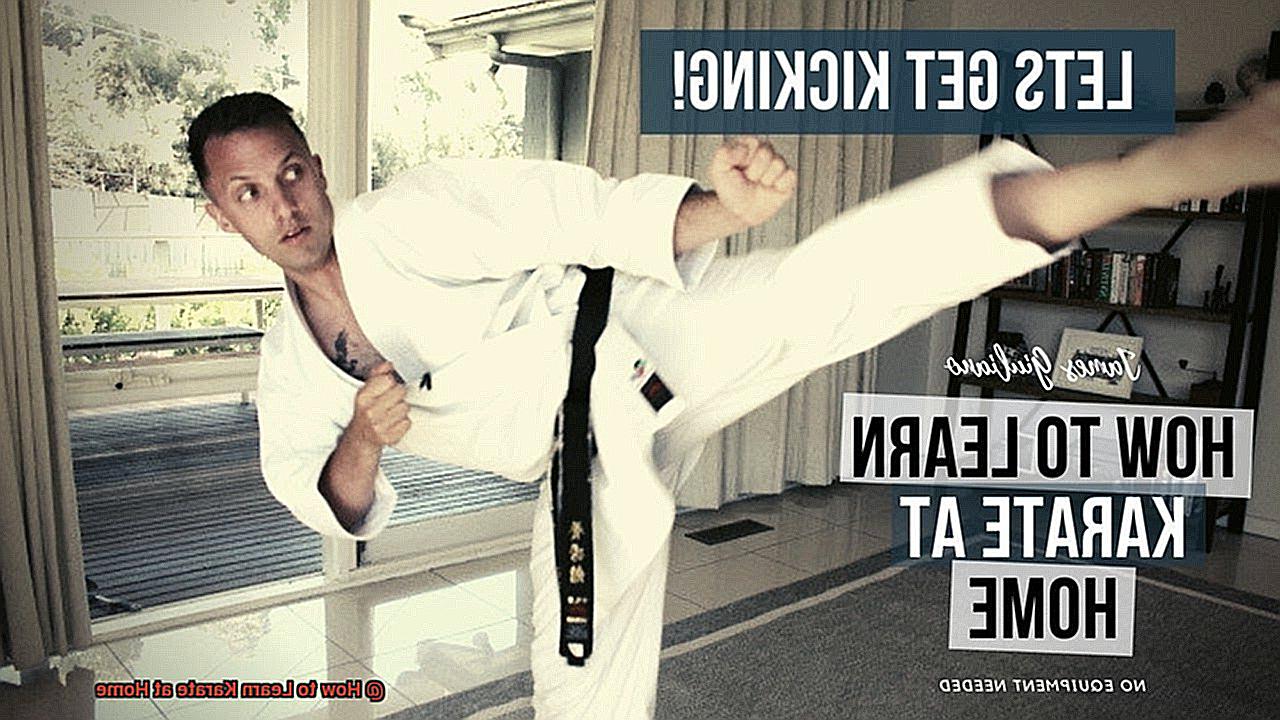
Finding a Dedicated Space for Training
Before you start, it’s crucial to find a dedicated space for your training.
This ensures that you have a safe, distraction-free environment where you can practice and improve your skills. To create the perfect training space, consider the following factors:
Space
You need enough room to move around comfortably, without any obstructions. A spare room or garage can work well, or even an outdoor area with a flat surface.
Flooring
Look for a flat, non-slippery surface to avoid accidents during training. If your chosen space has carpet or hardwood flooring, consider placing a mat or rug on top to provide some friction.
Lighting and ventilation
Adequate lighting will help you see your movements and avoid any accidental injuries, while proper ventilation ensures that your training area remains fresh and breathable.
Temperature
Extreme temperatures can affect your performance and lead to injuries, so ensure that the temperature is comfortable for you to train in.
Organization

Keep your training space free from clutter and any potential hazards. Organize your equipment and store it safely to avoid any accidents.
By taking these factors into account, you’ll create a safe and effective training space that allows you to focus on developing your karate skills.
Investing in Basic Equipment
Investing in basic equipment is an essential step towards mastering this martial art at home.
Without the right gear, you may struggle to develop your skills and even risk injury during practice. One of the most important pieces of equipment you’ll need is a gi or uniform.
Made of cotton, your gi should fit well to ensure comfortable movement during training. You can easily purchase a gi online or from a local martial arts store.
Another critical piece of equipment is the belt, which signifies your level of expertise. Starting with a white belt, you’ll progress through different colors until you reach the highest level, the coveted black belt.
Wearing your belt with pride will remind you of your progress and inspire you to keep improving. Mitts are also essential for protecting your hands during sparring sessions and providing a better grip on your opponent’s body.
You can purchase mitts online or from a local martial arts store. Finally, investing in a punching bag can take your training experience to the next level.
It provides an opportunity to practice techniques such as strikes and kicks accurately. A punching bag can be purchased online or from a local sporting goods store.
While investing in basic equipment may be costly, it’s crucial to ensure that you’re purchasing high-quality gear that guarantees durability and longevity. With the right equipment, you’ll be able to practice effectively and develop your skills quickly.
Maintaining Discipline and Focus
Learning karate at home can be a challenging but fulfilling journey.
However, it requires discipline and focus to stay motivated and achieve your goals. Here are some practical tips to help you maintain your focus and discipline throughout your training:
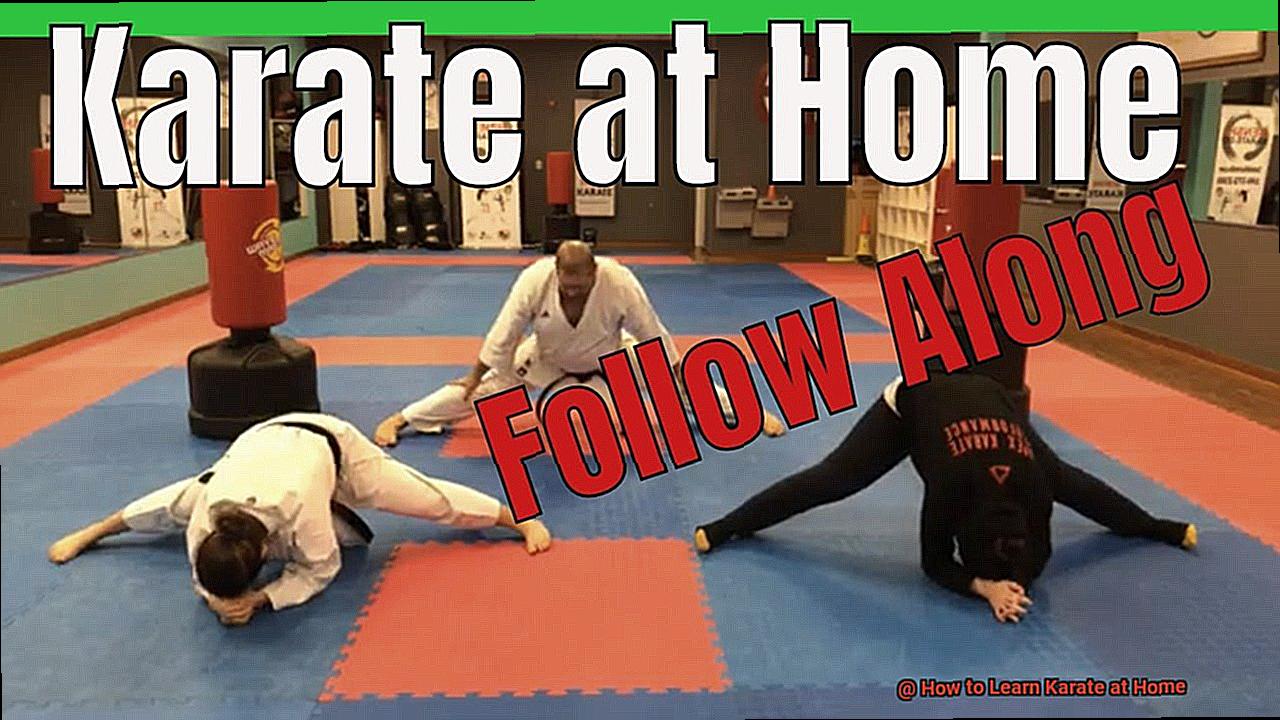
Firstly, setting clear goals and creating a schedule can help you stay disciplined. Establish achievable and realistic goals for yourself, and create a schedule that allows you to work consistently towards these goals. With a plan in place, it’s easier to stay motivated and focused on your training.
Secondly, maintaining a positive attitude is essential when learning karate at home.
Remember that progress takes time, and it may not always be visible right away. Instead of focusing solely on the end result, appreciate the process and be kind to yourself along the way.
A positive mindset will help you stay motivated and committed to your training. Distractions can easily derail your training sessions.
Therefore, it’s essential to eliminate any sources of distraction from your training environment. Turn off your phone, find a quiet space to train in, and avoid multitasking during your sessions. By doing this, you can maintain your focus on your training.
Finally, practicing mindfulness techniques such as meditation or deep breathing exercises can help improve your mental focus.
Incorporating these techniques into your routine can clear your mind and improve overall performance. In summary, maintaining discipline and focus is crucial when learning karate at home.
By setting realistic goals, creating a schedule, staying positive, eliminating distractions, and incorporating mindfulness techniques into your routine, you’ll be on track towards becoming a skilled karate practitioner.
Setting Goals and Tracking Progress
Learning karate at home is an exciting and challenging journey that requires dedication and perseverance.
To achieve success in this martial art, learners must set clear goals and track their progress along the way. In this post, we will explore the importance of setting goals and tracking progress when learning karate at home.
Setting goals is the first step towards mastering karate. It helps learners identify what they want to achieve and break it down into smaller, more manageable steps.
For example, a learner who wants to improve their flexibility could set a goal to complete a specific stretching routine every day for a week. Once they have achieved this goal, they can increase the difficulty level of the routine and continue working towards their ultimate goal.
Tracking progress is equally important in maintaining motivation and focus. By keeping a logbook or journal, learners can record their achievements and progress over time.
Celebrating small victories along the way is essential as it helps maintain enthusiasm and drive. This could be as simple as rewarding oneself with a healthy snack or treating oneself to a relaxing bubble bath after a successful training session.
Apart from setting goals and tracking progress, learners can benefit greatly from seeking feedback from others. Joining an online community or seeking guidance from a virtual instructor can provide valuable insights into areas that need improvement and help keep learners on track towards their goals.
By breaking down goals into manageable steps, tracking progress, celebrating small victories, and seeking feedback from others, learners can stay motivated and focused on their journey towards mastering this martial art.
FQxa9Cj7KAE” >
Patience, Dedication, and Willingness to Learn
If you’re embarking on the journey of learning karate at home, you’ll need to cultivate three critical qualities: patience, dedication, and a willingness to learn.
These traits will help you stay focused on your goals, overcome obstacles, and ultimately excel in your practice.
Patience
Patience is the first essential quality for learning karate at home.
It’s important to understand that progress takes time, and you may not see immediate results. However, with consistent practice and determination, you’ll gradually improve your skills and technique. So remain patient and trust the process.
Dedication
To succeed at learning karate at home, you must commit to regular training sessions and make them a part of your daily routine. Whether it’s early in the morning or late at night, carve out dedicated time for practice.
Consistency
Consistency is key to progress and staying motivated. Finally, a willingness to learn is essential for success in your karate practice.
Keep an open mind and embrace the opportunity to learn from your mistakes. Look for resources like instructional videos or online classes to supplement your training.
Also Read: Can You Teach Yourself Karate? – Karate Maine Blog
Conclusion
In conclusion, learning karate at home is a fantastic option for anyone who wants to pursue this martial art but may have time or financial constraints that prevent them from attending classes at a dojo.
With the right plan, equipment, and resources, you can begin your karate journey from the comfort of your own home. To ensure safety and focus during practice, it’s essential to create a dedicated space for training.
Investing in basic equipment such as a gi, belt, mitts, and punching bag will also help you develop skills effectively. Maintaining discipline and focus through goal setting, positive attitude, eliminating distractions, and incorporating mindfulness techniques can go a long way in keeping you motivated on this challenging but fulfilling journey.
Tracking progress and seeking feedback from others can also provide valuable insights into areas that need improvement. But most importantly – cultivating patience, dedication, and willingness to learn are critical qualities for success in learning karate at home.
With these qualities and steadfast commitment to your training regimen, you can achieve great success in your karate practice while strengthening your body, mind, and spirit.

